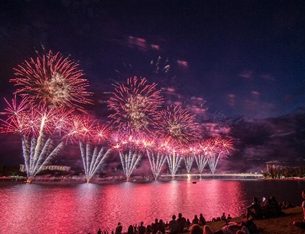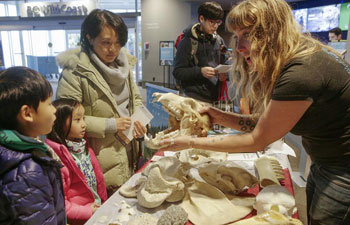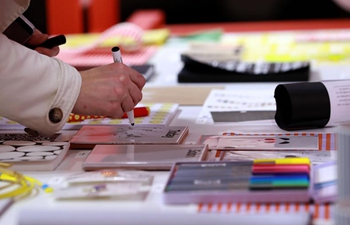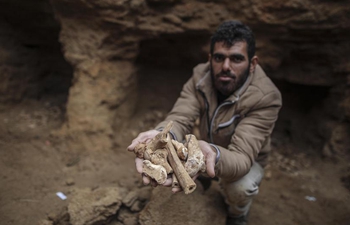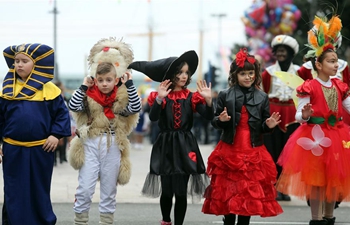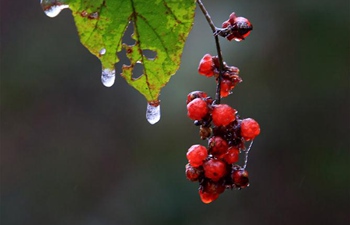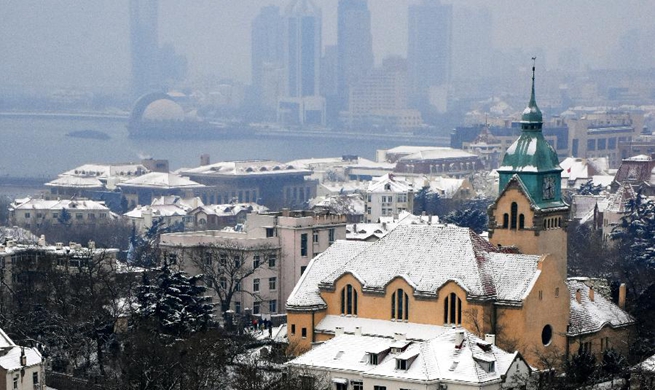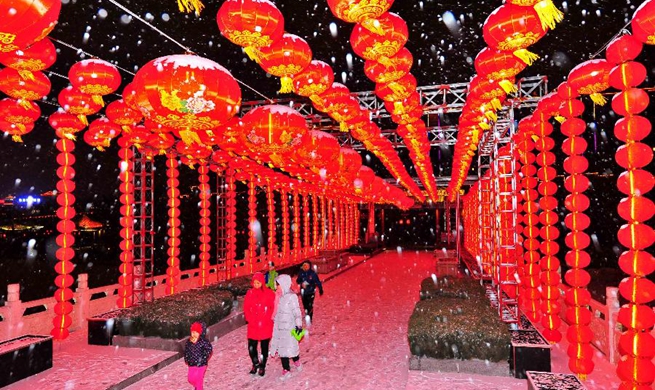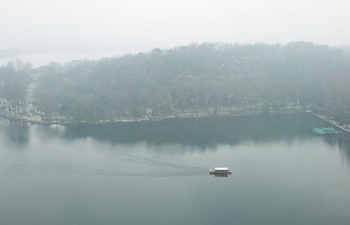DUBAI, Jan. 28 (Xinhua) -- While widely known of their iconic skyscrapers, shopping malls and cozy beaches, the Gulf Arab countries are stepping up their charm offensives to attract visitors who are interested in museums and events around Arab culture.
Visitor figures across the Gulf Arab states have been increasing for years, mostly driven by "shopaholics," maritime sports aficionados or fans of luxury hotels.
In recent months, however, Emirati, Saudi and Kuwaiti tourism authorities have stepped up efforts to attract visitors with an affinity for arts and oriental flair by pitching the cultural card, instead of luring them solely with the traditional beach-holidays, shop-till-you-drop pitch or as in Saudi Arabia's case, the religious tourism case.
Earlier last week, the government-controlled tourism body of Dubai, United Arab Emirates (UAE), said it entered into a memorandum of understanding with China's information technology and telecommunication giant Huawei in order to create an image bank and to spur smart tourism.
Under the terms of the MoU, the two sides said Huawei will work with Dubai Tourism to create awareness of Dubai's local culture and heritage across Middle East, Africa, and China. Huawei will share Dubai Tourism information, images, videos, events information, online booking/order services, with travelers (tourists, businessmen, residents) to provide a convenient and seamless online experience in Dubai.
Popular cultural hotspots in Dubai are the old souq (Arabic for market) in Dubai's Al Bastakiya district, the old port along the Dubai creek where traditional Arabic boats, also called dhows, still transport people and the Heritage Village which showcases the traditional Emirati housing and how Emirati nationals lived in the past.
Arabic coffee, music performed by artists who know how to play the Arabic stringed instrument called "oud" and a wide choice of spices and falafel meals are just a few features which visitors can indulge in the souq.
The beauty and discipline of the Arab camel is in the focus of all Gulf Arab countries when it comes to lure open-minded guests keen on learning about oriental culture. In Saudi Arabia the ongoing one-month 2nd edition of the King Abdul Aziz Camel Festival which started in early January and which will conclude on February 1st attracted so far over 500,000 visitors, "and 15 percent of them are foreigners from outside the Middle East," said Sultan Al-Bogomi.
He added that his government has just eased visa restriction and that it had "never been easier to obtain a Saudi tourism visa since the start of 2018."
Not only does the Saudi government aims to attract visitors from non-Arab countries, but it also is keen on luring guests from their fellow Gulf Arab neighbor countries. Camel owner Abdallah Salim from Al Ain, UAE, just returned from Saudi Arabia and told Xinhua "I own twenty camels and I find this opportunity to participate with my best camels at the festival which includes camel races, a great thing to celebrate the camel, a symbol of Arab pride."
Kuwait, which produces per year more oil than Algeria and Indonesia combined, also tries to show its visitors that it has more to offer than shopping malls, deserts and oil wells.
It will conclude on Monday the annual Al Qurain Cultural Festival which featured workshops and Kuwaiti artists and musicians. These events have in common that the organizing entities encourage their guests to post as many images as possible on social media channels like twitter, Instagram or WeChat, and to use the official hashtag in order to increase awareness about the activities at home and abroad. "Our honorable visitors are also our ambassadors," said Al-Bogomi.
Reem Al-Hashimy, the Emirati Minister of State and Managing Director for the Dubai World Expo 2020, said earlier in December Arabian heritage will be the focal points of the upcoming World Expo.
The sheikhdom will host the expo under the slogan "Connecting Minds, Creating the Future" from October 2020 until April 2021.
On this occasion, the sheikhdom hopes to attract up to 25 million visitors by 2020/2021, according to Al-Hashimy.
Dubai's neighbor emirate Abu Dhabi hit the global headlines last November when the long-awaited Louvre Abu Dhabi museum opened its doors to the public after a decade of planning and construction.
Designed by French architect Jean Nouvel, the Louvre Abu Dhabi is the first museum outside France which bears the name of the famous Louvre museum in Paris which opened in 1793 after the French Revolution.




